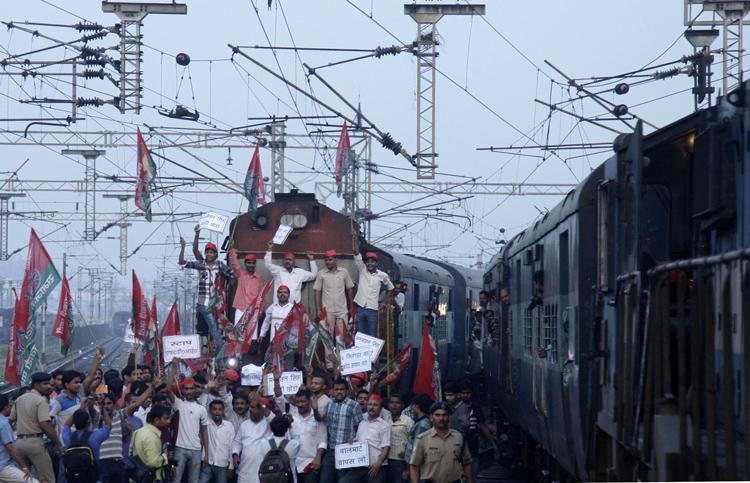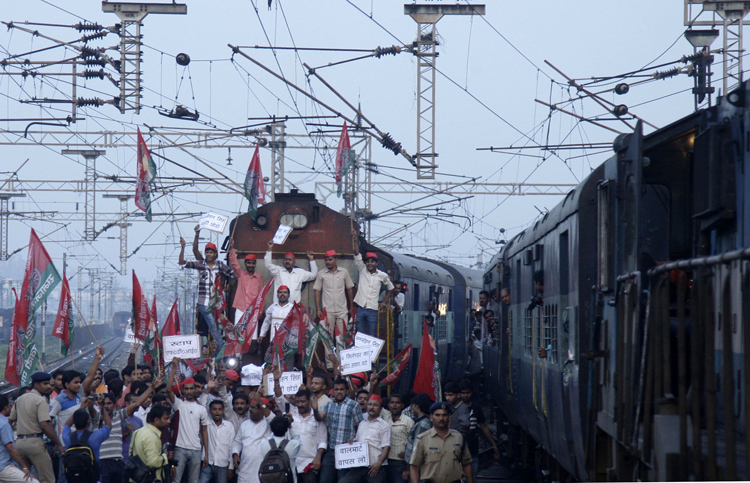PUDUCHERRY, India—Businesses, government offices, schools, and the transportation sector were shut down across India on Thursday due to a daylong strike to protest proposed economic reforms recently announced by the government.
The main opposition, the Bharatiya Janata Party, and others staged the strike against the governing Indian National Congress party.
The protests were aimed at economic policy changes that have increased fuel prices and opened the door to foreign investments, allowing major supermarket chains such as Wal-Mart Stores Inc. to directly invest in India.
According to a statement from the Confederation of Indian Industry, Thursday’s protests across the country caused a $2.2 billion loss.
The Congress-led United Progressive Alliance (UPA) coalition government was reduced to a minority on Tuesday after a regional key ally, the All India Trinamool Congress, withdrew its support.
“UPA never took us into confidence before taking decision on price hike despite our repeated requests,” wrote Mamata Banerjee, leader of the All India Trinamool Congress, on the party’s website earlier this week.
According to Banerjee, the economic reforms including the government’s Foreign Direct Investment (FDI) policy and diesel price increase will “kill farmers” and discriminates between states.
A flood of media reports in India has suggested that the relationship between the two former allies is beyond repair, with neither party willing to change its stand on the economic reforms.
Leaders of the Indian National Congress ruled out on Wednesday a rollback on the decision to allow foreign investment to directly enter the Indian retail market.
At the same time, the party is urgently seeking support from other political parties so as to remain in power and avoid early elections.
Indian Prime Minister Manmohan Singh previously said the reforms would help India keep up its economic growth and create jobs.
According to Ritu Dewan, a Department of Economics professor at the University of Mumbai, the proposed allowance of foreign investment in the retail sector will lead to massive displacement and increased economic vulnerability of Indian producers and retailers in both rural and urban markets.
“Rather than calling for FDI in retail we should encourage expanding markets within the countries in [the] South Asian region. Europe can bargain with America but not India,” Dewan said.
According to Dewan, these reforms would lead to farmers and urban small entrepreneurs from micro-accumulators to become micro-subsistence seekers, “They will get partially dependent and economically more vulnerable, and there will be displacement issues.”
Despite severe political opposition, the UPA, however, is all set to embark on an ambitious reforms agenda and has decided to fast-track the disinvestment process.
The political activity, on the other hand, is also gathering pace with certain political parties working on the possibilities of forming a third front to challenge both the UPA and the main opposition party.
The leaders of the Trinamool Congress have requested an appointment to meet with President Pranab Mukherjee on Friday, according to media reports.
Additional reporting by Alex Johnston.
The Epoch Times publishes in 35 countries and in 19 languages. Subscribe to our e-newsletter.







